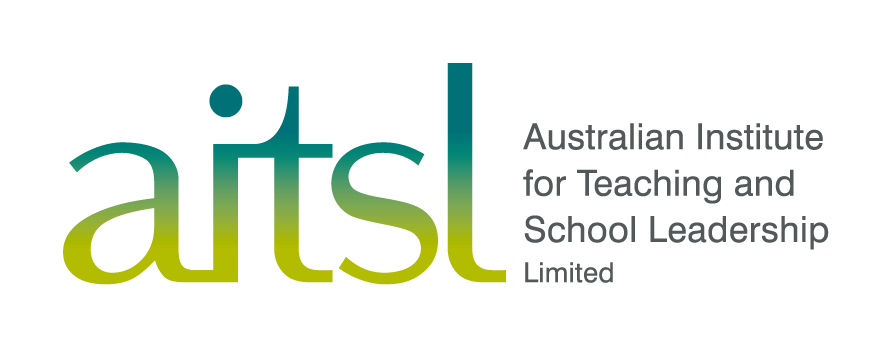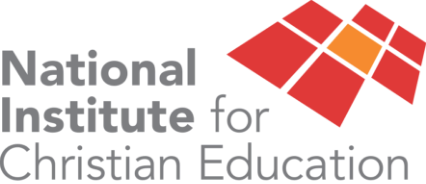In this subject, teacher education students will explore the ways in which new technologies can be used to support quality learning and teaching for Years 7-12 based on relevant pedagogical approaches. It will provide teacher education students with an opportunity to understand the various discourses that inform teachers’ knowledge and pedagogical practices, as well as critically engaging with models of pedagogy. It will also consider the impact of technology in the classroom on student learning and on society as a whole. Questions will be posed regarding the application of Christian and alternate worldview frameworks on ICT in the classroom and schooling. Teacher education students will gain experience in using technology as a productivity tool and in the design and evaluation of learning resources.
This subject is the first of two subjects in Curriculum Studies: History. Effective history teaching results from integrating theory and practice with ongoing critical reflection. This unit then considers the postmodern approach to history characterised by secularism and compares it with other faith-oriented constructs of History as well as a Christian philosophy of history. For teachers in training, it develops the knowledge and understandings of key content, concepts and substance of the History K-10 Syllabus and History Elective 7-10 Syllabus developed by the NSW Education Standards Authority (NESA) and the related History F-10 Syllabus developed by the Australian Curriculum, Assessment and Reporting Authority (ACARA). The unit explores a range of approaches to teaching, learning and assessing the curriculum including making links to literacy, numeracy and ICT requirements.
This unit provides an opportunity for Teacher Education students to investigate the use of innovative and research-based teaching approaches for a teaching area or an area of interest for pedagogy specialist skill development. Research-based evidence of how the brain learns and retains information will form the basis of pedagogies in practice. Students will also consider how to embed principles and values in pedagogy. Subject specific pedagogy will be explored as a basis for maximising student engagement and establishing effective classroom management practices. Specific attention will also be given to developing differentiated teaching and assessment resources with the innovative use of technologies, including Generative AI, to meet the diverse needs of learners.
This unit provides an opportunity to use effective pedagogical practices in relation to the junior secondary (Stage 4 and 5) curriculum of intending secondary teachers chosen teaching area(s). Teacher Education students will engage with their curriculum area to examine its content, core philosophies and value in contemporary society. Effective pedagogical practices will be examined and practiced in relation to the curriculum content, including planning and sequencing, explicit modelling and scaffolding, assessment and feedback. Teacher Education students will engage in micro-teaching to practice communication skills to support student learning in their subject area.
CRS441 Curriculum Studies - Integrated Sciences deals with science as it characterises primary and secondary school curricula. Science can be an uncomfortable topic in many Christian schools, sometimes being seen as the basis for a secular worldview that the school explicitly exists to challenge. The way that some people use science in irritating and distressing attacks on faith makes such suspicion understandable. However, many of these disputes rest on naïve and simplistic accounts of both science and faith. Science is an important part of contemporary life and a compulsory part of schooling, so those responsible for teaching it require a deeper understanding of such issues than may be the case for others, within the contexts of teaching and learning that they share with their fellow teachers. CRS441 integrates concern for such issues with teaching practice in contemporary Christian schools.
Students will explore the use of ICT to implement responsible and ethical solutions to problems in a society characterized by rapid technological change, global communication and increasingly competitive knowledge-driven economies. This course provides an introduction to curriculum, pedagogy and assessment for teaching the NESA’s Computing Technology Years 7-10 (2022) Syllabus. It provides students with an opportunity to understand the various discourses that inform teachers' knowledge and pedagogical practice as well as critically engaging with models of pedagogy. In this subject, students will also explore ways in which the development of ICT skills can be embedded across the curriculum to meet relevant Year 7-10 requirements.
This subject, prepares teacher education students to teach Studies of Religion I and II, Years 11-12 NESA syllabuses. It is designed to advance knowledge and understanding of key theoretical and pedagogical perspectives and issues in the teaching of Studies of Religion. It examines current developments in the theory and practice of Studies of Religion education. Students will work independently, collaboratively and interdependently to develop their capabilities in planning and implementing appropriate curriculum and pedagogy in light of Christian and alternate worldview. The subject aims to develop students’ knowledge of theoretical and practical aspects; engage with a range of pedagogical approaches and provides opportunities for the pre-service teachers to design learning and teaching sequences and assessment tools informed by research.
Almost all pupils experience Integrated Science in primary and the first years of secondary school. CRS441 Integrated Sciences dealt with teaching and learning issues arising in such science courses and provided an outline of theory and practice in such mandatory science teaching. CRS541 Physics, CRS542 Chemistry and CRS543 Biology are other courses within the science education suite that deal with discipline-based courses that are more characteristic of the senior secondary years and are attempted by fewer secondary pupils. Biology can seem more challenging for many of the families that trust their children to Christian schools, so CRS543 builds on the broader issues encountered in the earlier course, with a focus on developing pupil thinking through research and field work. Each of the courses within this suite is focused on a broad function within teaching and learning in the secondary school. CRS543 engages with implementation and assessment of pupil research and fieldwork.
CRS441 Integrated Science dealt with science courses that characterise almost all learner experience of secondary school curricula. CRS541 Physics and CRS542 Chemistry deal with discipline-based courses that are more characteristic of the senior secondary years and are attempted by fewer learners. Chemistry can seem more comfortable for many Christian schools, so CRS542 builds on the broader issues you encountered in the earlier course, with a focus on strategies that depend on learner activity and on the reporting issues that arise from learning that involves the development of specific skills, as well as particular knowledge.
CRS441 Integrated Science dealt with science courses that characterise almost all learner experience of secondary school curricula. CRS541 Physics and CRS542 Chemistry deal with discipline-based courses that are more characteristic of the senior secondary years and are attempted by fewer learners. Physics can seem more comfortable for many Christian schools, although CRS441 indicated that such has not always been the case.
CRS541 builds on the broader issues you encountered in the earlier course, with a focus on strategies that rest on teacher planning and presentation and on the evaluation issues that arise as curriculum policy moves Physics beyond applied mathematics.
This subject prepares pre-service teachers to teach a comparative religions course such as the New South Wales Studies of Religion syllabus for Years 11-12 developed by NESA. It is designed to advance knowledge and understanding of key theoretical and pedagogical perspectives and issues in the teaching of Studies of Religion. It examines current developments in the theory and practice of Studies of Religion education. Students will work independently, collaboratively and interdependently to develop their capabilities in planning and implementing appropriate curriculum and pedagogy in light of Christian and alternate worldviews. The subject aims to develop students’ knowledge of theoretical and practical aspects; engage with a range of pedagogical approaches and provides opportunities for the pre-service teachers to design learning and teaching sequences and assessment tools informed by research.
This unit outlines the Australian Curriculum and NESA Syllabus content for this area of study. Students will engage with the latest research in the area and have an opportunity to develop their own teaching plans and programmes. The unit content includes specific teaching pedagogical practices as well as curriculum specialisation
This unit outlines the Australian Curriculum and NESA Syllabus content for this area of study. Students will engage with the latest research in the area and have an opportunity to develop their own teaching plans and programmes. The unit content includes specific teaching pedagogical practices as well as curriculum specialisation
Students advance their skills in critically examining literacy and gain tools to asses thier class and progress the efficacy and skills of children K-2. The subject focuses on current pedagogies developed through the process of research and evidence-based outcomes which will equip future educators.
This unit outlines the Australian Curriculum and NESA Syllabus content for this area of study. Students will engage with the latest research in the area and have an opportunity to develop their own teaching plans and programmes. The unit content includes specific teaching pedagogical practices as well as curriculum specialisation
This introductory subject provides an essential foundation in accounting, emphasising its critical role in business decision-making. Key accounting principles and different business structures are explained, enabling students to analyse financial statements, create a budget, and effectively evaluate business decisions. With a blend of theory and practical application, students will learn to use accounting information to make sound business decisions, while also considering ethics and sustainability.
This foundational subject equips students with the essential management skills needed to design roles, recruit effectively, train teams, and develop fair compensation structures. By integrating these skills, students will be prepared to enhance job satisfaction and productivity within organisations, considering ethical and responsible management practices from a Christian perspective.
In today's fast-paced financial landscape, informed decision-making is key to personal and organisational success. Financial Decision Making equips students with vital skills, focusing on strategic and everyday financial choices. With practical case studies from Australia and beyond, the unit covers the time value of money, risk evaluation, and cash flow analysis. Students will learn how to apply financial planning strategies to navigate complex challenges effectively.
Recognising the need for informed decisions in today's data-driven marketplace, this course introduces students to essential mathematical and statistical methods needed in business, with a focus on ethical data usage and effective decision-making. You will learn to critically analyse, summarise, and present data, understanding its significant role in not only for-profit environments but also in NGOs and NFP organisations.
For not-for-profits and churches, understanding governance, law, and taxation is critical for effective management. This unit equips students with a sound understanding of the specific regulatory and taxation frameworks applicable to NFPs and religious organisations in Australia. Students will learn to apply this knowledge to real-world scenarios, critically engaging with contemporary policy debates surrounding these sectors.
Dive into the dynamic world of film and television. Students analyse and compare multimedia texts, identifying structural, conventional, and stylistic features. Through critical interpretation, students examine how ideas, perspectives, values, and worldviews are portrayed and received by audiences, supported by evidence-based analysis.
Embark on a captivating journey through Church History Foundations, exploring the begginings of the global church, from its inception to this present day. Dive into significant events and influential stakeholders, examining the impact of Christianity across diverse cultural landscapes. Gain insights into the historical and contextual influences of the Church within local communities.
Having a solid foundation for addressing complex problems in mathematics is important within multiple fields. This subject equips students with skills in linear algebra, including matrices and vector spaces, and operations research. Students will be prepared to apply mathematical reasoning to optimise solutions across various contexts.
Explore a comprehensive look into the evolution of music throughout both global and Australian contexts. This unit covers three significant areas: Western Art Music from the Middle Ages to today, the development of Popular Music, and the rich history of Australian Indigenous music. These topics will equip students to discuss and analyse music's transformative journey through time.
The field of musicology dives into the intricate study of music and its complexities. This unit provides students with the analytical tools necessary to examine music through various contexts—historical, cultural, and performative. It prepares you to articulate how music is constructed and perceived, enhancing your critical listening and discussion skills.
This immersive subject enhances your stage presence and technical skills through practical experience and peer feedback. Engage in solo and ensemble performances across diverse genres, while focusing on key techniques such as managing performance stress and understanding audience perception. This unit ideal for those looking to deepen their performance repertoire and professional readiness in a supportive, dynamic environment.
There is a dynamic relationship between musical expression and technological innovation. This unit explores how technology shapes music production, recording, and distribution. Learn to assess and apply various technologies—from PA systems to digital audio workstations—preparing you to design technologically integrated live events.
Harnessing creative potential, this subject equips students with the skills to compose original music across various genres. Students will learn to dissect and understand musical elements such as pitch, rhythm, and texture. By synthesising these components, students will be able to express unique musical ideas, select harmonies, and structure their compositions effectively to achieve desired emotional impact.
This subject, prepares teacher education students to teach Studies of Religion I and II, Years 11-12 NESA syllabuses. It is designed to advance knowledge and understanding of key theoretical and pedagogical perspectives and issues in the teaching of Studies of Religion. It examines current developments in the theory and practice of Studies of Religion education. Students will work independently, collaboratively and interdependently to develop their capabilities in planning and implementing appropriate curriculum and pedagogy in light of Christian and alternate worldview. The subject aims to develop students’ knowledge of theoretical and practical aspects; engage with a range of pedagogical approaches and provides opportunities for the pre-service teachers to design learning and teaching sequences and assessment tools informed by research.
Discover the history, culture, theology, philosophy, and politics that shape the religion of Islam. Gain essential insights into Christian-Muslim relations, unraveling the intricate web of contemporary society's cross currents.
This introductory subject provides an essential foundation in accounting, emphasising its critical role in business decision-making. Key accounting principles and different business structures are explained, enabling students to analyse financial statements, create a budget, and effectively evaluate business decisions. With a blend of theory and practical application, students will learn to use accounting information to make sound business decisions, while also considering ethics and sustainability.
This foundational subject equips students with the essential management skills needed to design roles, recruit effectively, train teams, and develop fair compensation structures. By integrating these skills, students will be prepared to enhance job satisfaction and productivity within organisations, considering ethical and responsible management practices from a Christian perspective.
In today's fast-paced financial landscape, informed decision-making is key to personal and organisational success. Financial Decision Making equips students with vital skills, focusing on strategic and everyday financial choices. With practical case studies from Australia and beyond, the unit covers the time value of money, risk evaluation, and cash flow analysis. Students will learn how to apply financial planning strategies to navigate complex challenges effectively.
Recognising the need for informed decisions in today's data-driven marketplace, this course introduces students to essential mathematical and statistical methods needed in business, with a focus on ethical data usage and effective decision-making. You will learn to critically analyse, summarise, and present data, understanding its significant role in not only for-profit environments but also in NGOs and NFP organisations.
Embark on a captivating journey through Church History Foundations, exploring the begginings of the global church, from its inception to this present day. Dive into significant events and influential stakeholders, examining the impact of Christianity across diverse cultural landscapes. Gain insights into the historical and contextual influences of the Church within local communities.
Having a solid foundation for addressing complex problems in mathematics is important within multiple fields. This subject equips students with skills in linear algebra, including matrices and vector spaces, and operations research. Students will be prepared to apply mathematical reasoning to optimise solutions across various contexts.
Explore a comprehensive look into the evolution of music throughout both global and Australian contexts. This unit covers three significant areas: Western Art Music from the Middle Ages to today, the development of Popular Music, and the rich history of Australian Indigenous music. These topics will equip students to discuss and analyse music's transformative journey through time.
The field of musicology dives into the intricate study of music and its complexities. This unit provides students with the analytical tools necessary to examine music through various contexts—historical, cultural, and performative. It prepares you to articulate how music is constructed and perceived, enhancing your critical listening and discussion skills.
This immersive subject enhances your stage presence and technical skills through practical experience and peer feedback. Engage in solo and ensemble performances across diverse genres, while focusing on key techniques such as managing performance stress and understanding audience perception. This unit ideal for those looking to deepen their performance repertoire and professional readiness in a supportive, dynamic environment.
There is a dynamic relationship between musical expression and technological innovation. This unit explores how technology shapes music production, recording, and distribution. Learn to assess and apply various technologies—from PA systems to digital audio workstations—preparing you to design technologically integrated live events.
Discover the history, culture, theology, philosophy, and politics that shape the religion of Islam. Gain essential insights into Christian-Muslim relations, unraveling the intricate web of contemporary society's cross currents.
This final Professional Experience subject involves the student taking full responsibility for a classroom to develop a range of skills. Student will have full responsibility for observing, planning, implementing, student assessment and reporting, and evaluating units of work, including embedding individualised programs for specific school students to support inclusion and diversity. By considering the gaps and silences evident in discourses about learners and learning and critically engage with ethical practices for inclusivity.The student will submit their Teacher Performance Assessment (TPA) at the conclusion of this subject.
This subject is delivered for City Harvest Church students.
This subject explores the developmental journey and processes that an individual goes through over a lifespan, from conception to death. It introduces various theories and milestones associated with each life stage and includes multicultural and critical perspectives on development. It will enable students to help individuals understand normal developmental processes, whether in health, education, minstry or people helping fields.
Preach by bridging the gap between ancient texts and exploring effective ways to communicate biblically sound truths to a modern world. If you want to learn how to develop life-changing preaching, and bring revelation to postmodern people that struggle with the Christian story, then look no further.
As financial transparency becomes increasingly crucial, this unit shines a light on the critical role of auditing in ensuring the reliability of financial statements. Students will delve into the auditing process and its essential legal and ethical foundations, gaining insights into risk assessment, audit strategy design, and report formulation.
Gaining a deep understanding of accounting theories enhances the ability to navigate complex financial reporting issues. This subject equips students with the skills to critically evaluate and apply various accounting theories within the framework set by the Australian Accounting Standards Board. Students will explore a range of contemporary issues, including fair value accounting and international harmonisation, providing a comprehensive perspective on current and emerging trends in accounting practice.
No curriculum description, objectives, outcomes or content available
No curriculum description, objectives, outcomes or content available
Understanding financial statements is crucial for making informed business decisions. In this subject, students learn to analyse and interpret financial data, assess business strategies, and critically evaluate financial disclosures. They develop skills to effectively research and use financial information for investment and credit recommendations. The unit also covers advanced valuation techniques and economic theories to prepare students for real-world financial challenges.
In the intricate landscape of corporate group accounting, mastering the accounting methods for managing investments in entities is essential. This unit equips students with the skills to navigate the classifications of investments as subsidiaries, associates, or joint ventures and the complexities of financial reporting as per Australian Accounting Standards. It also covers the preparation of consolidated financial statements, equity accounting, and other advanced topics.
Through exploring the systems and processes that drive financial data management within businesses, you will learn to use advanced tools like XBRL for reporting, assess internal controls, and implement effective corporate governance and audit planning, ensuring robustness and integrity in financial systems. Gaining these skills is beneficial for future roles in business and finance.
Proficiency in management accounting is essential for informed organisational decision-making. Learn budgeting, costing, and performance evaluation techniques. Explore contemporary developments and gain skills in budget preparation and variance analysis. Master the tools for strategic financial planning and control, essential for navigating dynamic business environments.
Build on accounting fundamentals and progress onto mastering accounting processes. Learn about key concepts and theories of financial reporting, transaction recording and preparation of financial reports. Students will become proficient in basic double entry accounting, and learn practical skills in using accounting software packages. The skills to critically evaluate financial reports are developed, while management skills related to financial management and performance are both imparted and applied.
Understanding Australia's financial reporting landscape is crucial for success in diverse organizational contexts. Gain the knowledge and skills to interpret complex financial statements, apply accounting standards effectively, and remain informed about current developments, preparing you for real-world challenges in financial reporting.
The books of Proverbs and Psalms are two of the most well-known and loved texts within the Old Testament/Hebrew Bible. In addition to Proverbs, the books of Job and Ecclesiastes comprise what is known as Wisdom Literature, a genre of writings from the ancient Near East comprised of sayings and teachings by sages and the wise about the breadth of the human experience. Psalms is an anthology of Hebrew hymns to be used either in collective liturgical settings or for personal expression. Throughout this course, we will engage with tools of exegesis to reflect on how to read the Wisdom and Psalms text, as well as the Song of Songs, which is neither part of Psalms or Wisdom Literature, yet is Hebrew poetry and considers wisdom in relationships.






